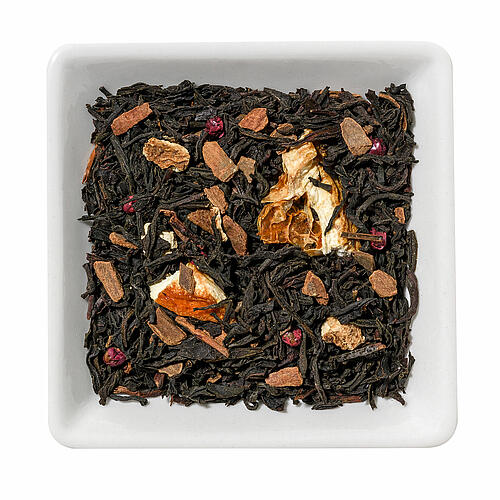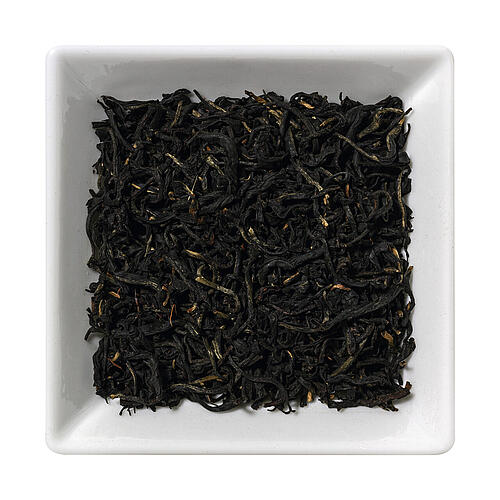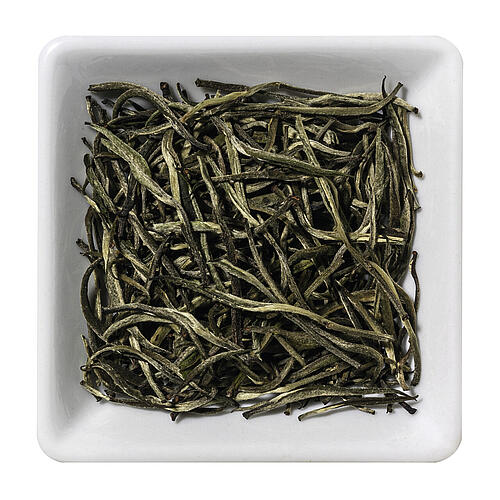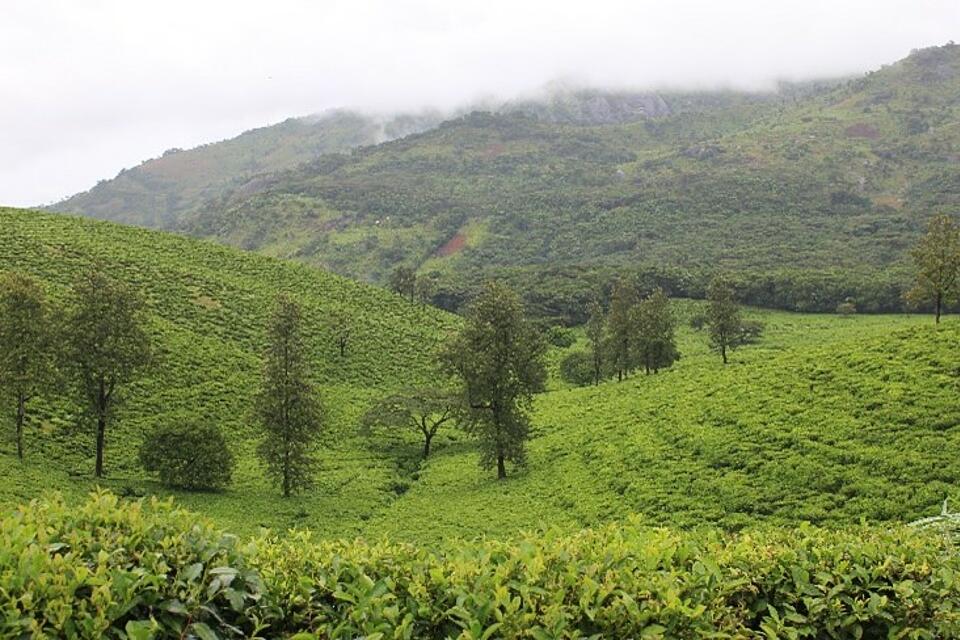
Tea from Mozambique
Portrait of a country of origin to mark International Tea Day – we celebrate what we love.
Tea from Mozambique is usually included as one of the newcomers, rarities or specialities in a tea product range. At Wollenhaupt, we have found an expert partner in Chá de Magoma, a plantation that gives us access to the best tea qualities from Mozambique. The ‘Mozambique Monte Metilile OP Organic Tea’ black tea (item no. 00451) and ‘Mozambique Monte Metilile White Organic Tea’ (item no. 00452) have earned an established place in our catalogue tea assortment, thanks to growing demand from our customers and yours.
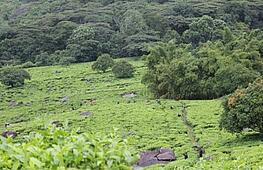
Our partner, Chá de Magoma, transformed a former overgrown tea plantation into a viable and sustainable business in one of the most poverty-stricken countries in the world. Chá de Magoma has been participating in the Fairtrade programme since mid-2020, and Wollenhaupt signed the first contract for Fairtrade certified tea with Chá de Magoma at that time. Sustainability is a driving force for the company. Today, the tea estate complies with the Fairtrade criteria and is now certified under the programme.
An interview with Thomas Mathews, Garden Manager at Chá de Magoma:
Wollenhaupt: Why did you decide to get Fairtrade certified?
Thomas Mathews: We saw Fairtrade as an opportunity to provide for the wellbeing and welfare of our workers and the community at large by generating Fairtrade premiums.
Wollenhaupt: What is unique about your Monte Metilile / Monte Branco gardens?
Thomas Mathews: Our gardens were originally planted by the Portuguese in the twenties and thirties. Since then, these plantations have experienced many ups and downs. Highs where they were very successful (in the 1930s to ‘70s), and lows where they were abandoned and completely devastated after the civil war (1977-1992). Some of our plantations had turned into tea forests. It took us a lot of effort and work to restore them to their former splendour. Now we can proudly say that we have put Mozambique on the global tea map by establishing and cultivating the largest organic tea plantation in the world!
Wollenhaupt: What has changed for you since you introduced Fairtrade programm?
Thomas Mathews: Since we implemented the Fairtrade practices, we have noticed that our employers have a stronger sense of belonging. Every employee feels connected to their work and knows the importance of caring for the environment and how beneficial it is for each and every person.
Wollenhaupt: What is the special aspect about your Mozambique Fairtrade tea?
Thomas Mathews: Mozambique is a very poor country. Buyers of our Fairtrade-certified teas can take pride in knowing that the Fairtrade premiums which are paid are used to benefit one of the most impoverished communities in the world. The amount of the Fairtrade Premium is defined per kilo of tea and is paid by Wollenhaupt in addition to the price of the goods. There is much that can be done to help the local population. Fairtrade-certified tea is one of the posibilities that can greatly contribute to meeting these needs.
Wollenhaupt: How much premium income have you been able to generate through Fairtrade?
Thomas Mathews: For 2020, we generated Fairtrade premiums totalling around 92,000 euros. We hope that we can realise even higher premiums this year.
Wollenhaupt: Up to now, which projects have you specifically invested the money from the Fairtrade premiums in?
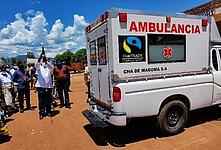
©Chá de Magoma
Thomas Mathews: As our first Fairtrade project, we bought an ambulance. It helps people who need medical care to get to the nearest hospital.
We have built water collection points around the numerous natural springs on the plantation. Easy access to drinking water is a problem due to the size of the plantation. These collection points have helped solve this problem to a large extent.
Wollenhaupt: What are your plans for the future?
Thomas Mathews: Future plans include:
- the establishment of a cooperative grocery store to provide workers with staple foods at stable prices throughout the entire year,
- a bicycle distribution program so that workers on the farm are more mobile and can move around the vast plantation more quickly and easily, and
- the installation of tube wells in populated areas so that workers have an easily accessible supply of drinking water.
Fairtrade is a great way to help the local population meet their basic needs better and raise their standard of living. It enables better working practices and contributes to improving the lives of everyone involved.
Information on the Importance of Fairtrade
Fairtrade is based on the three pillars of sustainability:
- Social
- Ecological
- Economic
For detailed information, visit https://www.fairtrade.net/standard/spo-tea.
The teas from Mozambique are available in various qualities from Wollenhaupt. In addition to high-quality leaf teas such as the Mozambique Monte Metilile OP organic tea (Item No. 0045142) and the Mozambique Monte Metilile organic white tea (Item No. 0045242), you can also receive fannings in bulk on request. If you have any special requests, please do not hesitate to contact us.
